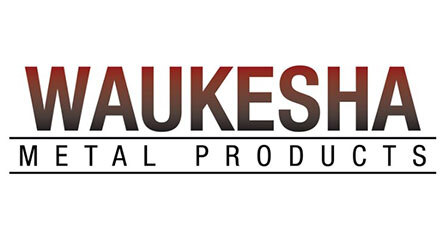According to a recent survey conducted by the Job Shop Company of U.S. OEM Engineers and Buyers; quality is the most important factor in measuring outsourcing partners. In manufacturing, quality is typically defined in terms of technical specification, variation and number of defects. This is true for the most part, but quality also includes a non-visible aspect known as process excellence. What should you look for when selecting an outsourcing partner in the metalforming industry? Here are just a few quality best practices to keep in mind to ensure a successful relationship. Quality Processes- Determine whether the proper quality processes are in place for your project from the design and prototyping phase through delivery. The Advanced Product Quality Planning (APQP) Process is an essential first step for up-front quality planning. There are seven major elements of the APQP process: 1. Understanding Clients needs 2. Proactive feedback 3. Design Reviews 4. Designing within the process capabilities 5. Analyzing and mitigating failure modes 6. Verification and validation (PPAP) 7. Control special/critical characteristics Production Part Approval Process (PPAP) is a validation procedure that has many different aspects that verify print specifications. This is not a conclusive list, but gives you an idea of important features a PPAP should include: 1. Failure Mode and Effects Analysis (FMEA): Used to identify potential failures in a design or process. 2. Control Plans: Defining expectations before production. 3. Capability Studies: This includes how a process can meet a target dimension each and every time! 4. Gage Repeatability & Reproducibility: Through Gauge R&R a supplier can determine the accuracy of certain measurements by establishing its repeatability and reproducibility. 5. Statistical Analysis: Maps out target points, their means and control limits. The statistical analysis is used to identify out-of-tolerance specification or unstable conditions. Quality Equipment- The technology used during the inspection process of metal stamped and fabricated parts isfundamental for accurate detection and prevention of defects. Ask for an outline of the quality equipment used, you will see that trustworthy metalformers will continually seek to improve quality control equipment to detect potential defects quicker. 1. Coordinate Measurement Machines (CMM): Checks tight tolerance dimensions and compares them to the print to make sure the part meets all specifications. Data is collected so adjustments can be made. 2. Optical Comparators: Non-contact technology that measures the dimensions of a part with resolutions as precise as 0.00002. 3. FabriVision: Non-contact, flat part scanner that provides automatic measurements and digitizing capabilities. The FabriVision creates a color-coded report highlighting any part variations. 4. Calipers & Specific Gauges: Calipers are hand-held measuring devices used to measure overall dimensions of a part, there are a variety of different gauges that match the form, fit and function of a part or component. Sometimes, metalformers will build a custom gauge for unique parts. 5. In-Die Sensor Technology: This is an automated technology that notifies the press controller of errors such as mis-feeds, material variation, slugs as well as protects the tool from avoidable damage. Sensor Technology can save a lot of time in the production process- does your metal stamper have an engineering team dedicated to sensor technology? Information Technology- An organizations ability to recall the latest data on any project provides clients with above average customer service. All team members should have access to up to date data for job scheduling and tracking, print revision history and shipping schedules. In the quality department, a robust IT system is necessary to store all quality documents in a single location. These documents include: 1. Work Instruction 2. 1st piece/In Process/Last Piece Inspections 3. Document Audits & Internal Audits 4. Calibration Records Quality Certifications- Obtaining current, high-level quality certifications should be a requirement! This shows that a manufacturer has a robust quality system in place and can meet the needs of customers and other stakeholders. 1. ISO 9001: The general standard that requires a quality management system to establish, document, implement, maintain and continually improve its effectiveness. 2. ISO/TS 16949: Specific to Automotive-related products; standard is also accepted by other industries such as aerospace and electronics. 3. ISO 14001: Environmental Standard that requires a quality management system to identify, control and improve environmental impact. 4. AS 9100 or other industry specific Certifications: Depending on what industries a metalform manufacturer serves, specific certifications can be important such as for Aerospace or Medical Devices. Commitment to Process Excellence- Quality does not stop at technical specifications and number of defects. Continuous enhancements are key drivers in effective quality control. Make sure that your potential outsourcing partners are demonstrating a commitment to process excellence. Remember, no manufacturing process is perfect, no matter the level of quality measures. Get to know the way youre potential supplier handles defects and it will make you one step closer to a successful, long term relationship. Our Quality Policy: Waukesha® Metal Products strives to deliver products and services that meet or exceed our customers expectations through continuous improvement of our Quality Management System.

